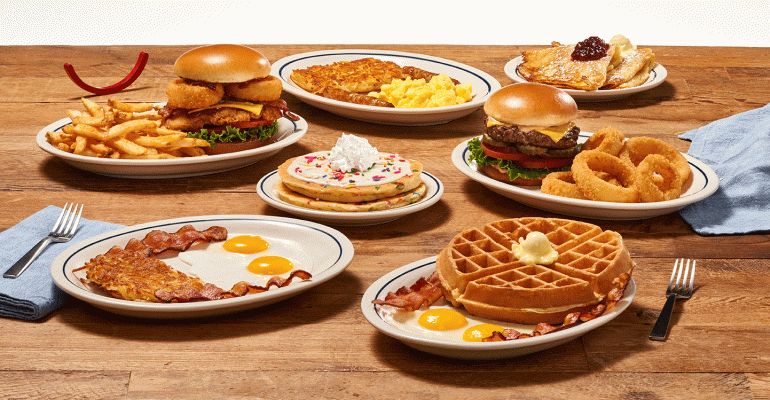Menu customization certainly isn’t new in the restaurant space. Subway and Chipotle perfected a customization-driven assembly line model long ago, spawning a host of copycats.
As consumers become increasingly tethered to their mobile phones, however, customizable orders have become easier to create and demand has increased accordingly. Starbucks’ recent quarters illustrate as much. During the coffee chain’s Q3 earnings call in August, CEO Howard Schultz said, “Customer demand for specifically customized cold coffee beverages is so strong that cold beverages now account for roughly 75% of our total beverage sales in U.S. company-operated stores.” Increased customization, he added, helped drive record average weekly sales during the quarter and the chain will continue to answer the call for such orders.
“We’re in the early stages of the cold beverage platform in terms of what we’re going to bring in terms of innovation and the modifiers and the customization gives us a significant competitive advantage,” Schultz said.
The trend has grown so big, Starbucks is now rolling out a proprietary system, called Siren System, designed to meet the growing demand for customization of hot and cold beverages and warm foods. In test, the Siren System reduced the process for making a Grande Pink Drink from 52 seconds 24 seconds, the company said.
Starbucks isn't the only brand rushing to meet this growing demand. Saladworks this week announced a new promotion allowing customers to customize their salad, grain bowl or wrap with the choice of five ingredients and 16 salad dressings. The company notes this menu customization allows guests to accommodate dietary restrictions, cater to their individual preferences and experiment with new flavors and combinations.
“We’re thrilled to bring menu choices and customization to Saladworks’ guests to close out 2022. Our goal is to motivate healthy eating and the addition of this creative element makes it all the more fun for our customers, and even us,” chief brand officer Lauriena Borstein said in a statement.
In September, MOD Pizza lunched a new “FUNdle” promotion, with four pizzas, a mega-sized salad and four cakes. In a statement, MOD CMO Mark Shambura said the promotion fits the brand’s customizable model.
“Families have always gravitated toward MOD, where it’s easy to please everyone’s tastes with individual, customized pizzas and salads. With the MOD FUNdle, there’s now another convenient option for the whole family to enjoy together,” Shambura said.
A few months ago, IHOP introduced a new Choice menu, also aimed at giving customers more choices throughout the day. The chain also tinkered its app and website to make it easier for guests to customize their orders from the new menu. According to the chain’s internal market research, over 80% of orders that come through its system are customized.
Burger King has a customization page on its app and website and just launched a new “You Rule” campaign focused on “celebrating guests’ individuality.” The brand has long embraced its “Have It Your Way” position, and in a statement, president Tom Curtis said its new campaign elevates this position “beyond pure product customization.”
It’s not likely the expectations of having more choices will fade – at least not anytime soon. Recent research from McKinsey & Company finds that 71% of consumers expect companies to deliver personalized interactions, and 61% get frustrated when it doesn’t happen. University of Florida research supports this data, adding that smartphone usage is driving more consumers toward customization.
Because of that driver, restaurant brands aren’t just embracing customization on the menu. In September, for instance, Panera evolved its MyPanera Rewards program by allowing customers to choose what rewards they receive. Also in September, Caribou Coffee launched a new app that allows customers to save their favorite customizable drinks for easy reordering.
Still, giving customers what they want by way of intensified customization is a bigger challenge now more than ever as the restaurant industry grapples with lingering labor shortages and more ordering channels. We’ve seen these pressures manifest throughout the industry as employees from Starbucks to McDonald’s beg customers to stop ordering complicated drinks and meals.
Subway, a customization pioneer, recently shifted in the opposite direction with its Subway Series lineup in an effort to simplify operations. The company claims this shift helped drive record-breaking sales, including average unit volume records set in 2012. It’s worth noting, however, that the Subway system has closed thousands of U.S. stores throughout the past several years, which is also likely creating healthier sales. Time will tell if its customers start missing its customization model, or rather if its new curated sandwich line offers a point of differentiation.
Contact Alicia Kelso at [email protected]




